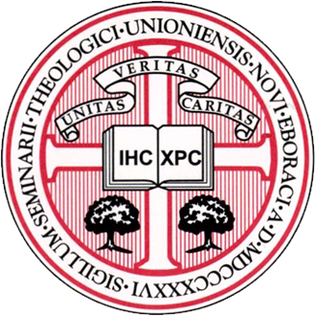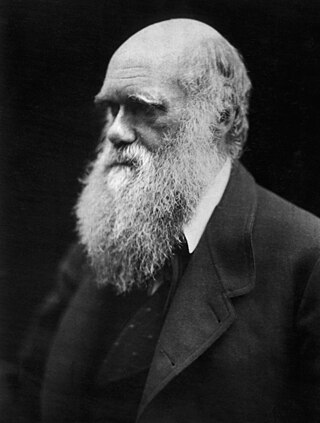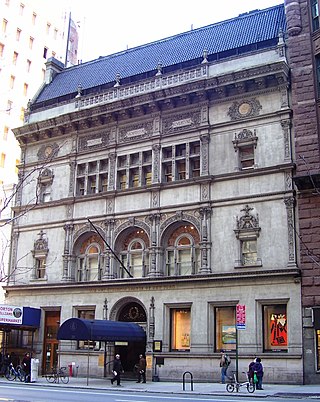Related Research Articles
Antisemitism is hostility to, prejudice towards, or discrimination against Jews. This sentiment is a form of racism, and a person who harbours it is called an antisemite. Though antisemitism is overwhelmingly perpetrated by non-Jews, it may occasionally be perpetrated by Jews in a phenomenon known as auto-antisemitism. Primarily, antisemitic tendencies may be motivated by negative sentiment towards Jews as a people or by negative sentiment towards Jews with regard to Judaism. In the former case, usually presented as racial antisemitism, a person's hostility is driven by the belief that Jews constitute a distinct race with inherent traits or characteristics that are repulsive or inferior to the preferred traits or characteristics within that person's society. In the latter case, known as religious antisemitism, a person's hostility is driven by their religion's perception of Jews and Judaism, typically encompassing doctrines of supersession that expect or demand Jews to turn away from Judaism and submit to the religion presenting itself as Judaism's successor faith—this is a common theme within the other Abrahamic religions. The development of racial and religious antisemitism has historically been encouraged by anti-Judaism, though the concept itself is distinct from antisemitism.
Evangelicalism, also called evangelical Christianity or evangelical Protestantism, is a worldwide interdenominational movement within Protestant Christianity that emphasizes the centrality of sharing the "good news" of Christianity, being "born again" in which an individual experiences personal conversion, as authoritatively guided by the Bible, God's revelation to humanity. The word evangelical comes from the Greek word for "good news" (euangelion).
The Christian right, or the religious right, are Christian political factions which are characterized by their strong support of socially conservative and traditionalist policies. Christian conservatives seek to influence politics and public policy with their interpretation of the teachings of Christianity.

With 23 percent of the United States' population as of 2018, the Catholic Church is the country's second largest religious grouping, after Protestantism, and the country's largest single church or Christian denomination where Protestantism is divided into separate denominations. In a 2020 Gallup poll, 25% of Americans said they were Catholic. The United States has the fourth largest Catholic population in the world, after Brazil, Mexico, and the Philippines.
Religion in the United States is widespread, diverse, and vibrant, with the country being far more religious than other wealthy Western nations. An overwhelming majority of Americans believe in a higher power, engage in spiritual practices, and consider themselves religious or spiritual. Christianity is the most widely professed religion, with most Americans being Evangelicals, Mainline Protestants, or Catholics.

Union Theological Seminary in the City of New York (UTS) is a private ecumenical Christian liberal seminary in Morningside Heights, Manhattan, affiliated in Columbia University. Since 1928, the seminary has served as Columbia's constituent faculty of theology. In 1964, UTS also established an affiliation with the neighboring Jewish Theological Seminary of America. UTS confers the following degrees: Master of Divinity (MDiv), Master of Divinity & Social Work dual degree (MDSW), Master of Arts in religion (MAR), Master of Arts in Social Justice (MASJ), Master of Sacred Theology (STM), and Doctor of Philosophy (PhD).

Darwin Day is a celebration to commemorate the birthday of Charles Darwin on 12 February 1809. The day is used to highlight Darwin's contributions to science and to promote science in general. Darwin Day is celebrated around the world.

Harvard Divinity School (HDS) is one of the constituent schools of Harvard University in Cambridge, Massachusetts. The school's mission is to educate its students either in the academic study of religion or for leadership roles in religion, government, and service. It also caters to students from other Harvard schools that are interested in the former field. HDS is among a small group of university-based, non-denominational divinity schools in the United States.
The Sexuality Information and Education Council of the United States, or simply SIECUS, is a national, nonprofit organization based in Washington, D.C., dedicated to advancing sex education through advocacy, policy, and coalition building. SIECUS develops, collects, and disseminates information, promotes comprehensive education about sexuality, and advocates the right of individuals to make responsible sexual choices. It is widely regarded as the institutional voice of these concerns and a pioneer of the comprehensive sex education program.

The Chicago Theological Seminary (CTS) is a Christian ecumenical American seminary located in Chicago, Illinois, and is one of several seminaries historically affiliated with the United Church of Christ. It is the oldest institution of higher education in Chicago, originally established in 1855 under the direction of the abolitionist Stephen Peet and the Congregational Church by charter of the Illinois legislature.
The New Thought movement is a new religious movement that coalesced in the United States in the early 19th century. New Thought was seen by its adherents as succeeding "ancient thought", accumulated wisdom and philosophy from a variety of origins, such as Ancient Greek, Roman, Egyptian, Chinese, Taoist, Vedic, Hindu, and Buddhist cultures and their related belief systems, primarily regarding the interaction among thought, belief, consciousness in the human mind, and the effects of these within and beyond the human mind. Though no direct line of transmission is traceable, many adherents to New Thought in the 19th and 20th centuries claimed to be direct descendants of those systems.

The Congregation of Christian Brothers is a worldwide religious community within the Catholic Church, founded by Edmund Rice.

Lyman Pierson Powell was an American Episcopal clergyman and college president. Powell was originally a critic of Christian Science but later became a sympathizer and wrote an authorized biography of its founder.

The Art Students League of New York is an art school in the American Fine Arts Society in Manhattan, New York City. The Arts Students League is known for its broad appeal to both amateurs and professional artists.
Paul Samuel Boyer was a U.S. cultural and intellectual historian and Merle Curti Professor of History Emeritus and former director (1993–2001) of the Institute for Research in the Humanities at the University of Wisconsin–Madison. He had held visiting professorships at UCLA, Northwestern University, and William & Mary; had received Guggenheim Foundation and Rockefeller Foundation Fellowships; and was an elected member of the American Academy of Arts and Sciences, the Society of American Historians, and the American Antiquarian Society.
The Religious Studies Center (RSC) is the research and publishing arm of Religious Education at Brigham Young University (BYU), sponsoring scholarship on the culture, history, scripture, and doctrine of the Church of Jesus Christ of Latter-day Saints. The dean of Religious Education serves as the RSC's director, and an associate dean oversees the two branches of the RSC: research and publications.
The American Teachers Association (1937-1966), formerly National Colored Teachers Association (1906–1907) and National Association of Teachers in Colored Schools (1907–1937), was a professional association and teachers' union representing teachers in schools in the South for African Americans during the period of legal racial segregation in United States. In 1954 the United States Supreme Court ruled in Brown v. Board of Education that segregation of public schools was unconstitutional. The Civil Rights Act of 1964 ended legal segregation.
Religious communism is a form of communism that incorporates religious principles. Scholars have used the term to describe a variety of social or religious movements throughout history that have favored the common ownership of property.
Shelton College was a private, Christian, liberal arts college that was located in Cape May, New Jersey. It was involved in a landmark case requiring religious schools to acquire a state license to grant academic degrees.

The Religious Education Association is the world’s oldest and largest association of scholars and researchers in the field of religious education. It is a nonprofit member association, serving as a professional and learned society for scholars and researchers involved in the field of religious education. It has several hundred members, most of whom are from North America, with a scattering of members worldwide. REA members are university and college professors, independent scholars, secondary teachers, clergy, church educators, curriculum developers, judicatory executives, seminarians, graduate students, and interested lay-people. REA members come from multiple faith traditions, and no tradition, and study a very diverse array of religious traditions. The REA's leaders are drawn from a distinguished list of educators.
References
- ↑ "Guide to the Archives of the Religious Education Association (Record Group #74)". Yale University Library. Retrieved 11 April 2015.
- ↑ Schmidt, Stephen (1983). The History of the Religious Education Association . Religious Education Press. p. 37.
- ↑ Schmidt, Stephen (1983). The History of the Religious Education Association . Religious Education Press. p. 53.
- ↑ "To help students choose vocations," New York Times, 7 March 1914, p. 8
- ↑ "Christian Educators of the 20th Century" . Retrieved 4 September 2015.
- ↑ "Religious education body will gather at Cleveland," Chicago Daily Tribune, February 13, 1913, p. 16
- ↑ "Whitman summons rich to service," New York Times, 8 March 1914, p. 9
- ↑ "Dr. G. B. Stewart, Theologian, Dies," New York Times, 24 June 1932, p. 19
- ↑ "Group of 16 backs 8 point program," New York Times, 20 August 1941, p. 9
- ↑ "Dr. Donald J. Cowling, 85, Dies," New York Times, 29 November 1965, p. 35
- ↑ "Burke Library Archives, Columbia University" (PDF). Retrieved 4 September 2015.
- ↑ "Herbert Shenton, sociologist, dies," New York Times, 8 January 1937, p. 19
- ↑ "Christian Educators of the 20th Century" . Retrieved 4 September 2015.
- ↑ Schmidt, Stephen (1983). The History of the Religious Education Association . Religious Education Press. pp. 110–111.
- ↑ "Jewish education called vital need," New York Times, 12 May 1941, p. 12
- ↑ "Christian Educators of the 20th Century" . Retrieved 4 September 2015.
- ↑ "F. Ernest Johnson, Churchman, dies," New York Times, 5 July 1969, p. 19
- ↑ "Harvard University Library, Ernest Kuebler Papers finding aid". Archived from the original on 3 April 2015. Retrieved 4 September 2015.
- ↑ "Religious education group elects general secretary," 9 February 1952, p. 14
- ↑ "Interfaith group elects editor," New York Times, 22 November 1962
- ↑ "Bethune Cookman University" . Retrieved 4 September 2015.
- ↑ "Laetare Medal, University of Notre Dame" . Retrieved 4 September 2015.
- ↑ "Radio," New York Times, 28 November 1976, p. 136
- ↑ "Ottawa Citizen" . Retrieved 4 September 2015.
- ↑ "Christian Educators of the 20th Century" . Retrieved 26 February 2016.
- ↑ "Christian Educators of the 20th Century" . Retrieved 26 February 2016.
- ↑ "The Oklahoman" . Retrieved 26 February 2016.[ permanent dead link ]
- ↑ "Christian Educators of the 20th Century" . Retrieved 26 February 2016.
- ↑ "Christian Educators of the 20th Century" . Retrieved 26 February 2016.
- ↑ "Emmanuel College Library Finding Aids" . Retrieved 26 February 2016.
- ↑ "National Black Catholic Congress". Archived from the original on 16 September 2015. Retrieved 4 September 2015.
- ↑ "Christian Educators of the 20th Century" . Retrieved 26 February 2016.
- ↑ "Notes from the Quad Yale Divinity School". Archived from the original on 23 December 2015. Retrieved 26 February 2016.
- ↑ "YaleNews" . Retrieved 26 February 2016.